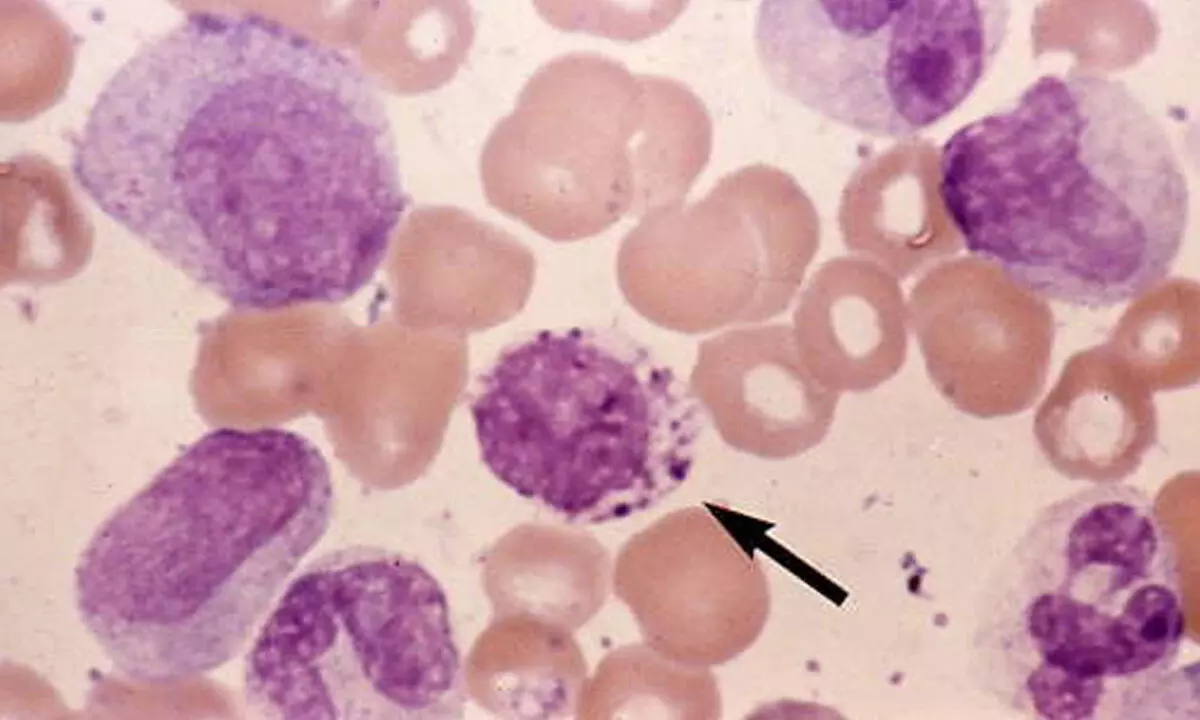Live
- All you need to know about PAN 2.0
- Akasa Air redefines travel experience with industry-first offerings
- MP: Residents stage protests against liquor shop in Indore
- Telugu Actor Shri Tej Booked for Alleged Cheating and False Promise of Marriage in Live-in Relationship
- Toyota Kirloskar Motor Celebrates 1 Lakh Urban Cruiser Hyryder on Indian Road
- MLS: New York City FC part ways with head coach Nick Cushing
- Delhi CM says Centre cutting AAP voters’ names from rolls, BJP hits back
- Hyderabad Metro Rail Phase-II Works to Begin in Old City in January 2025
- Odisha: 668 persons killed in human-elephant conflicts in last three years
- DEFENDER JOURNEYS: TO EMBARK ON ITS THIRD EDITION FROM NOVEMBER 2024
Just In
Embracing Life with CML - A Comprehensive Guide to Proactive Management


Chronic Myeloid Leukemia (CML) is not just a diagnosis; it is a lifelong journey that requires proactive management and emotional resilience.
Chronic Myeloid Leukemia (CML) is not just a diagnosis; it is a lifelong journey that requires proactive management and emotional resilience. Comprising about 15% of all leukemia cases, CML affects the bone marrow, leading to the uncontrolled growth of white blood cells. While a cancer diagnosis can initially seem daunting, it is important to recognize that CML is manageable with the right approach.
According to Dr. Ganesh Jaishetwar, Lead Consultant and Head, Department of Haematology and Bone Marrow Transplant, Yashoda Hospitals "CML affects over a million people globally. I see about four to five new cases of CML every month. In India, the median age of CML patients is between 40-50 years, younger than the global average by ten years. With advancements in medical technology and ongoing developments in drug therapies, many CML patients can achieve good disease control and lead fulfilling lives. Monitoring haematological parameters and molecular response, as per ELN guidelines, improves long-term disease control. New treatments, thanks to technology and drug developments, offer refined options”.
Although CML is often termed a 'good cancer' because it is manageable, it is important to know that as CML progresses, it stops being ‘good.’ Some patients may become resistant to medications or experience side effects that impact their daily lives. However, timely interventions and careful monitoring can help avoid or manage these challenges. This is why, effective communication with healthcare providers ensures optimal management and instills a sense of hope and confidence in the treatment journey.
Alongside medical aspects, the emotional impact of CML cannot be overlooked. One of the initial challenges faced by CML patients is the social stigma associated with cancer. Many individuals feel hesitant to disclose their diagnosis beyond immediate family due to societal perceptions. This is where strong family support and emotional resilience play a crucial role. Open communication with loved ones and seeking mental health support when needed are essential components of holistic CML management.
Here are a few proactive tips to support your journey with CML:
• Continuous Monitoring: Track your BCR-ABL levels consistently to assess treatment effectiveness and catch any changes early on. Regular monitoring is vital for timely interventions and preventing disease progression.
• Holistic Approach: Take a comprehensive approach by including mental health support, dietary adjustments, and regular exercise into your routine. This holistic approach boosts overall well-being and supports CML management.
• Open Communication: Actively engage in open and honest conversations with your doctor and caregiver. Share any concerns, symptoms, or challenges you encounter during your CML journey to ensure effective support and management.
• Support Networks: Connect with other CML patients through support groups to share experiences, receive emotional support, and feel less isolated in your journey.
According to the National Institute of Health, approximately 1.2 to 1.5 million people worldwide are living with CML, with significant improvements in treatment outcomes due to advancements in medical science. CML treatment, particularly tyrosine kinase inhibitors (TKIs), have significantly improved outcomes and quality of life for patients.
While CML is a part of life for many, it does not define one's identity. Remember, your active involvement in your treatment and emotional well-being plays a crucial role in achieving better health outcomes and maintaining a good quality of life.

© 2024 Hyderabad Media House Limited/The Hans India. All rights reserved. Powered by hocalwire.com






